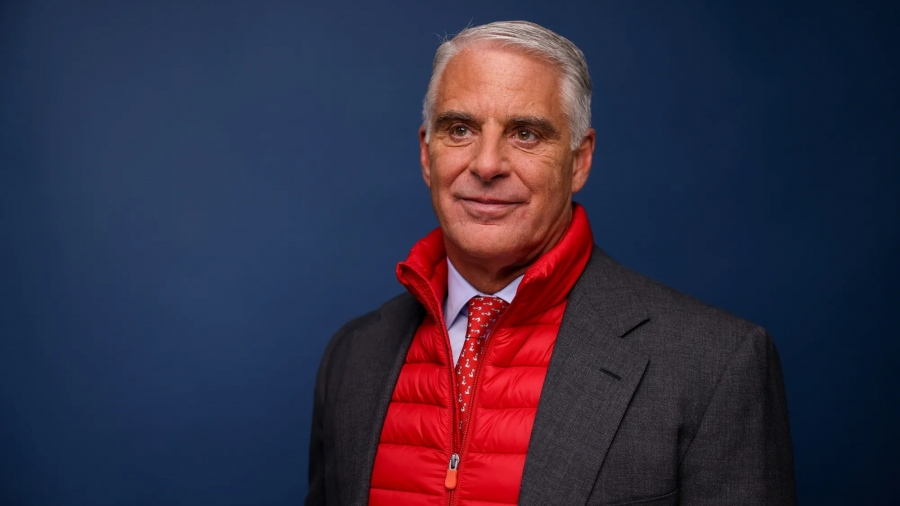
Andrea Orcel in Athens, during one of his regular trips to closely monitor UniCredit is Alpha Bank investment. In a joint press conference with the CEO of the Greek bank following his April visit, the 61-year-old banker said, "Both of us are committed to Romania, both of us like Romania, both of us see a lot of value there," and he went on to say, "If and when there is an opportunity, we will consider acquisitions in cooperation."
For Orcel, the skilled dealmaker, the partnership with Alpha Bank may have been one of the smallest transactions of his career. However, as he pointed out to us—at the time—it is a creative approach at a time when national interests and unfinished work on a European banking union often prevent cross-border deals. In response to a question, he had added that the deal was the result of a methodical focus on expanding UniCredit's size in Romania. Indeed, the partnership with Alpha Bank has evolved into a partnership that, according to Orcel, can be a model for how the Italian bank can enter new markets.
From the facts/developments, it seemed that the Rome-born and Rome-based banker, with a thorough knowledge of the inside of European banking, saw, from then on, the potential to hit a bigger market, the German market. During his tenure, from Merrill Lynch and UBS to Santader e.t.c., his risky moves earned him the designation Ronaldo of investment banking. His preference for Portugal is well known; he is married to Clara Batalim-Orcel (a Portuguese interior designer). He has been credited with more... nickname, Deal Junkie (in Spain they call him El Triburon... from his time at Santader). Why am I mentioning this? Precisely because Andrea Orcel is unami, who for Alpha Bank investors/shareholders is the one who, as "shark," could give a boost to UniCredit's stake in Alpha Bank to lure his friend Vassilis Psaltis into more sharky tactics. In practice, to make the bank pursue a more aggressive policy, to open up to more innovative products, to enter new markets, to regain the vigour that it once had as a financial institution.
Indeed, today Alpha Bank has fallen to 4th place in the relative ranking of systemic banks—based on a valuation of €3.526 billion—with Piraeus, under Christos Megalos, having overtaken it by €1.154 billion, with the gap widening. In fact, it has also been undercut by PPC, with George Stassis taking it from €380m (after the July 2019 elections) and enlarging it today to €4.48bn.
Even more unexpectedly, the hawkish Apostolos Vakakis' Jumbo overtook Alpha Bank this week, pushing it down to 10th place in the relevant ranking. The consequence of this downward trajectory is the double-digit underperformance recorded on the stock market board. At €1.50 yesterday, the stock was down 5% on the month, almost 7% in the quarter, and a total of minus 2.63% since the beginning of the year.
The only one of the 4 with a negative outlook for 2024, when Eurobank shares are up 22.61%, ΝΒG 19.65%, Piraeus 17.09% and the Banks Index returns 14.43% in the same period. That is why shareholders/investors (to) see in the Italian banker the factor that could give the boost that his friend Vassilis Psaltis needs in order to make up for lost investor ground. Bringing to mind the words of the song Un Amico from Ennio Morricone's classic Revolver. The older ones will understand me.






